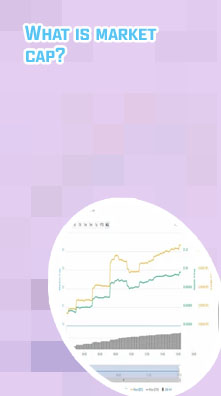Cryptocurrency cap is a crucial aspect of the digital currency market that can greatly impact its value and stability. Understanding the factors that determine cryptocurrency cap can help investors make informed decisions and maximize their profits. In order to delve deeper into this topic, here are four articles that provide valuable insights and strategies for navigating the cryptocurrency cap landscape.
The Role of Market Demand in Determining Cryptocurrency Cap

Cryptocurrency market cap is a crucial indicator of the value and popularity of digital currencies. Market demand plays a significant role in determining the market cap of cryptocurrencies. The higher the demand for a particular cryptocurrency, the higher its market cap will be. Market demand is influenced by various factors such as investor interest, media coverage, regulatory developments, and technological advancements.
Investor interest is a key driver of market demand for cryptocurrencies. As more investors become aware of the potential of digital currencies, demand for them increases, leading to a rise in market cap. Media coverage also plays a crucial role in shaping market demand. Positive news coverage can attract more investors, boosting demand and ultimately market cap.
Regulatory developments can also impact market demand for cryptocurrencies. Favorable regulations can increase investor confidence and attract more capital to the market, driving up demand and market cap. On the other hand, negative regulatory developments can dampen investor sentiment, leading to a decrease in demand and market cap.
Technological advancements in the cryptocurrency space can also influence market demand. Innovations such as improved scalability, security, and privacy features can make cryptocurrencies more attractive to investors, driving up demand and market cap.
In conclusion, market demand is a key determinant of cryptocurrency market cap. Investors should closely monitor factors such as investor interest,
Analyzing the Impact of Regulation on Cryptocurrency Cap
The world of cryptocurrency has been a hot topic of discussion for several years now, with its value and volatility capturing the attention of investors, regulators, and the general public alike. One of the key factors that can greatly influence the value of cryptocurrencies is regulation. As governments around the world grapple with how to regulate this new form of currency, the impact on cryptocurrency market cap can be significant.
Regulation can have both positive and negative effects on the value of cryptocurrencies. On one hand, clear and transparent regulations can provide a sense of legitimacy and security to investors, leading to increased adoption and higher market cap. On the other hand, overly restrictive regulations can stifle innovation and drive investors away, causing the market cap to plummet.
One of the most famous examples of regulation impacting cryptocurrency cap was in 2017 when China cracked down on cryptocurrency exchanges and Initial Coin Offerings (ICOs). This move caused the value of Bitcoin and other cryptocurrencies to drop significantly, wiping out billions of dollars in market cap.
Another notable event was when the US Securities and Exchange Commission (SEC) announced that it would regulate cryptocurrencies as securities. This decision had a mixed impact on the market cap, with some cryptocurrencies gaining value due to increased credibility, while others saw their value decrease due to stricter regulations.
Strategies for Maximizing Profits in a Volatile Cryptocurrency Cap Market
In the fast-paced world of cryptocurrency trading, navigating through the ups and downs of a volatile market can be a daunting task. However, with the right strategies in place, investors can maximize their profits even during uncertain times.
One key strategy for success in a volatile cryptocurrency market is diversification. By spreading investments across different cryptocurrencies, investors can lower their risk exposure and potentially increase their chances of profitability. It is important to research and understand the unique characteristics of each cryptocurrency before investing to make informed decisions.
Another important strategy is to set stop-loss orders to protect investments from sudden price drops. By setting predetermined price points at which to sell off assets, investors can limit potential losses and preserve their capital.
Additionally, staying informed about market trends and news is crucial for making wise investment decisions. Keeping up with the latest developments in the cryptocurrency world can help investors anticipate market movements and adjust their strategies accordingly.
Overall, with a solid understanding of the market and the right strategies in place, investors can thrive in a volatile cryptocurrency market and maximize their profits. This topic is important for both experienced investors looking to enhance their profitability and newcomers seeking guidance on navigating the unpredictable world of cryptocurrency trading.
Exploring the Relationship Between Cryptocurrency Cap and Market Sentiment
Cryptocurrency has become a hot topic in the financial world, with investors and enthusiasts closely watching the market cap and market sentiment to make informed decisions. Market sentiment, which refers to the overall feeling or attitude of investors towards a particular asset, plays a crucial role in determining the price movements of cryptocurrencies. By exploring the relationship between cryptocurrency market cap and market sentiment, we can gain valuable insights into the dynamics of the digital asset market.
-
Market Cap: The market cap of a cryptocurrency is calculated by multiplying the current price of the digital asset by the total number of coins in circulation. It is a key indicator of the overall value and size of the cryptocurrency market.
-
Market Sentiment: Market sentiment is the collective attitude of investors towards a particular asset, which can range from positive to negative. Positive market sentiment can drive up prices, while negative sentiment can lead to price drops.
-
Correlation: Research has shown that there is a strong correlation between cryptocurrency market cap and market sentiment. When market sentiment is positive, investors are more likely to buy, driving up demand and ultimately increasing the market cap of the cryptocurrency.
-
Volatility: The relationship between market cap and market sentiment can also contribute to the volatility of the cryptocurrency market. Sudden shifts in sentiment can lead to